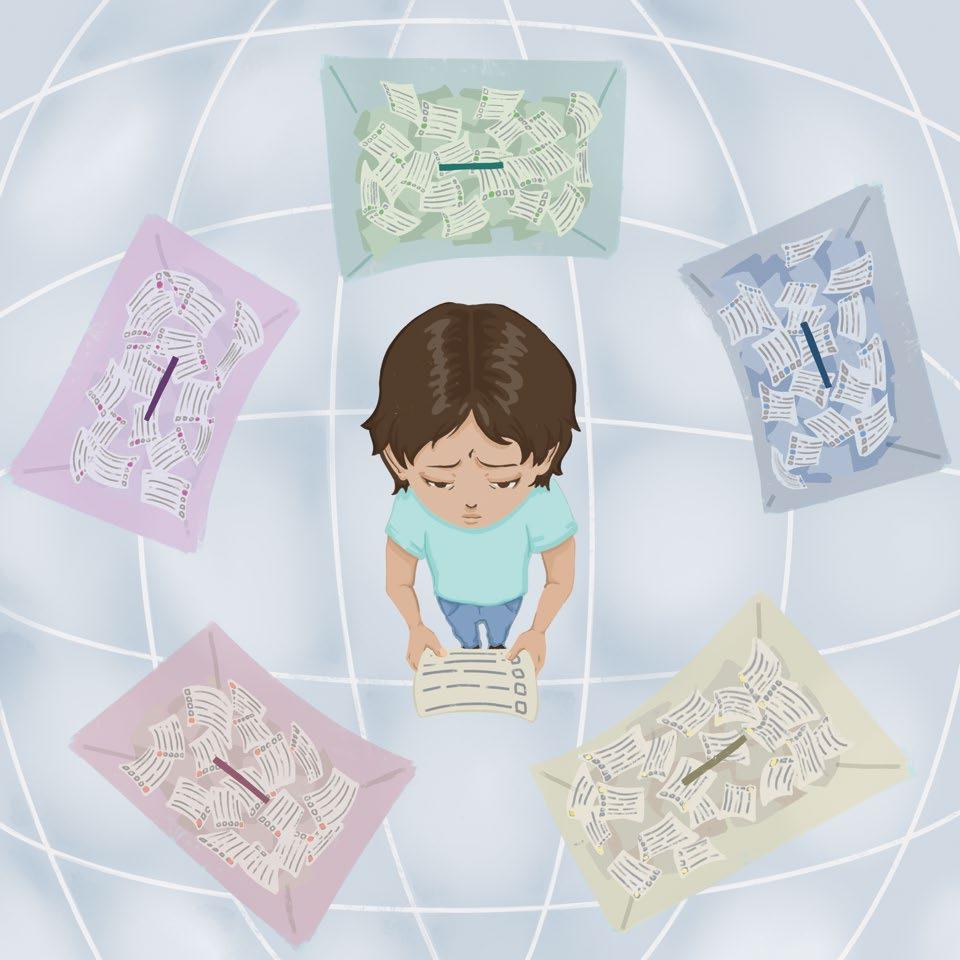
2 minute read
DIDN’T VOTE DOESN’T MEAN DIDN’T CARE
Instead of passing the blame onto people, it’s time we look at the system itself
MATT SHIPLEY (HE/HIM) Contributor MICHELLE LUSSIER (SHE/THEY) Illustrator
Advertisement
I’m a major proponent of democracy. Voting is a right, and while it’s not necessarily our duty to exercise that right, it’s the surest way of electing a government that represents us as a people. But, as I continue to learn more about our system and the people within it, I’ve found that sometimes the people who care the most about the future of the country either refuse to vote, or aren’t even given the option.
If I didn’t vote, it’s not because I didn’t care – I could have any number of extraneous motivators. As someone who has been continually frustrated by our current system, every election is a painful reminder that we’re still hopelessly far from a future that I truly believe in. I vote because I hope to play a small part in uplifting the system into something my children will be proud of – a system where the fight for basic human rights is but a memory, and where humans and the nature we depend on can coexist.
An important question to ask yourself, no matter the situation is, why? Stop jumping to conclusions, and try to see where a nonvoter is coming from. Are they just not well enough acquainted with the political parties? Are they uninterested, or do they not care who comes into power? Did they have easy access to a polling station? There are endless valid reasons not to vote, and while many believe it’s important to vote, it’s also imperative to understand the people who don’t.
Voting has become an increasingly stressful exercise for the everyday person. Whether you vote or not, people are going to lay down their judgment on you. If someone were to vote for the PPC, they’ll face backlash from their less conservative social circles. If someone were to vote for the NDP, people will claim a wasted vote. No matter which route you walk, it won’t be easy, and that’s keeping a lot of people these days from voting. If your vote will change your relationship with your friends, will you vote at all?
In the same vein, all of Canada’s major parties are more or less centrist. Sure, the Conservatives toe towards the right, and the NDP shuffles to the left, but they all stand for very similar things. Someone exasperated with the current oil-fueled, capitalist system will find themselves with nobody to vote for. If they want justice for Indigenous peoples, a carbon-free or even carbon-neutral economy, or protection for all remaining old-growth forest, they’re out of luck.
I’ve kept a close eye on the Fairy Creek defense situation, and it’s made two things abundantly clear: the forest suffers no matter who we vote for, and politicians lie if it suits their goals. If I were a forest defender, sacrificing a normal life on a seemingly hopeless mission to protect the last few dregs of true nature in BC, I would be incurably pissed at the NDP. But, as the NDP presents itself as the furthest left of the conventional Canadian parties, and the Liberals have already shown how little they care about their environmental promises, who would I vote for?
I understand the people who don’t vote. If I weren’t as much of a die-hard voter, I would probably join them. Because, as it is becoming increasingly evident in the North American geopolitical landscape, none of the parties in power will jump at the opportunity for systemic change, because the system in place is what brought said party to power in the first place. Nonvoters deserve just as much respect as the voting population, because while voters are advocating for a change in leadership, many nonvoters are fighting for a change in the system itself.






